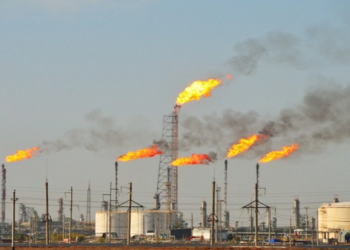Nigeria’s daily crude oil production output increased slightly to a daily average of 1.41 million barrels in November 2022.
This is according to data from the Nigerian Upstream Petroleum Regulatory Commission, which was released yesterday and seen by Nairametrics.
The data, which is available on the commission’s website, shows that crude oil volumes for November 2022 were 1,185,604, with blended condensates at 40,691 and unblended condensates at 187,799, amounting to 1,414,093.
Meanwhile, crude oil volumes for October 2022 were 1,014,485, blended condensates were 28,232 and unblended condensates were 187,655, amounting to 1,230,372 barrels per day.
The fight against crude oil theft: Although minimal, the NUPRC data shows that Nigeria is increasing its crude oil production capacity. And this could be due to efforts by the government to combat oil theft.
Earlier this week, Bala Wunti, the Chief Upstream Investment Officer at the NNPC Upstream Investment Management Services (NUIMS), told news anchors on Arise TV that the Nigerian National Petroleum Company (NNPC) Limited and security operatives are launching an offensive against crude oil theft perpetrators. He said some of these perpetrators are already in the law court, facing prosecution.
According to him, the NNPC and its security partners have successfully removed 638 out of 763 illegal refineries: Wunti said work is still being done to identify new illegal refineries, stating the fact that 70% of illegal refineries have been incapacitated already. During the 11th Practical Nigerian Content Forum on December 6, Bala Wunti disclosed that Nigeria’s oil production as of December 6 is 1.59 million barrels per day.
Focus on the current realities: As crude oil production increases, will the NNPC now be able to remit revenues to the federation account? December 2022 data from the Foreign Trade report, released by the National Bureau of Statistics (NBS), showed that the NNPC earned N16 trillion between January and September 2022 but did not remit any to the federation account.
For the record: Recently, the World Bank recommended that to gain from the country’s oil and gas sector, some changes have to be made:
- Safeguard the country’s oil and gas assets by amending the Petroleum Industry Act (PIA) to specify that oil and gas assets will belong to the federation and the ownership will be transferred to the NNPC Limited or any other party upon payment of the full market value.
- Require that oil and gas fiscal revenues be transferred first to the federation account by amending the PIA to require the government revenues related to the oil and gas contracts to be paid to the federation account.
- Ensure that all oil and gas fiscal payments be made in cash by amending the PIA to remove references to tax oil, royalty oil, and production-sharing contracts, and retain only profit-sharing contracts, thereby ending all in-kind fiscal payments.



















